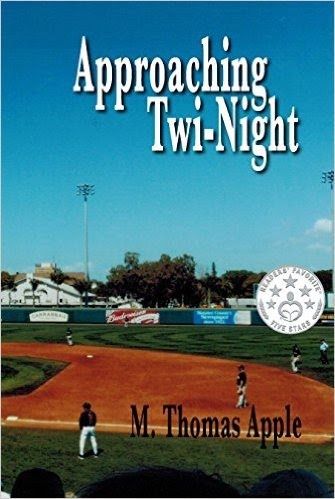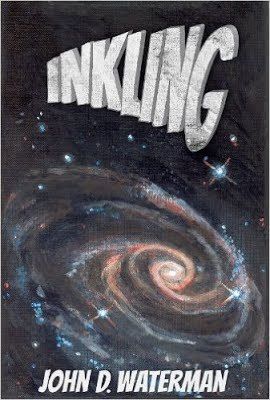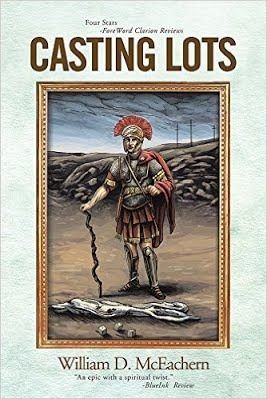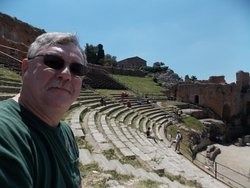
Literary Fiction / Sports Fiction
Date Published: February 2015

An aging baseball player is given one final chance at professional and personal redemption in small town America as he struggles to come to grips with his past, his sense of self, and his career.
Journeyman relief pitcher Jonathan “Ditch” Klein was all set to be a replacement player during the 1994-1995 baseball strike…until the strike ended. Offered a contract in the minor leagues, playing at the same Upstate NY ballpark he once found success in high school, Ditch has one last chance to prove his worth. But to whom? A manager with an axe to grind, a father second-guessing his pitching decisions, a local sportswriter hailing him as a hometown hero, a decade older than his teammates and trying to resurrect an injury-ridden career…Ditch thinks he may have a possible back-up plan: become a sportswriter himself. The only question is whether he is a pitcher who aspires to be a writer, or the other way around…
EXCERPT
From his perch on the mound, Ditch shaded his eyes and watched the foul ball gently curve over the grandstand toward the parking lot. As he held his glove out for the new ball, he could hear his father's voice from a high school game: "Straighten that out, Johnny, just straighten it out!" And he could remember himself at the plate, thinking, "I can't, Dad. I can't hit it."
He gripped the dull white leather in his pitching hand, tucked the glove under his left arm and slowly circled the mound. Ditch's hands worked the leather, trying to deftly massage life into the ball. His fingernails found the seams and began to pull them up from the leather; Ditch had always wondered as a kid why pitchers on TV wasted so much time walking the infield grass, if "raised seams" actually did anything to curves like his father claimed, if pitchers who stared out at the crowd were actually looking for someone. He stopped on the first base side of the mound and glanced at the runners on first and second, not really to check on them, just let them know he knew they were there. The runners strayed a step or two from their bags, sauntering back and forth with hands on hips, kicking the bags a couple times impatiently. They knew Ditch wouldn't throw, he knew they wouldn't run, not on Holforth's arm.
Ditch tugged at his cap and deliberately ignored the anxious hometown crowd on "Opening Day Two." Absently he wondered if his family was in the stands somewhere, his father holding little Jennifer up on his shoulders, pointing, "There's John, there he is." He climbed back up to the pitching rubber, haphazardly pulling his short sleeves up and shrugging them down again. The murmurs changed to a soft buzz of rushing air in his ears as he dug in with his right foot and stared in at Holforth behind the plate. He squinted on purpose at the flashing fingers, set for the third pitch, and threw.
The batter fouled it off again, this time straight into the visiting team dugout, nearly hitting the coaches at the top of the steps. Ditch received the next new ball and began his ritual anew. The batter fidgeted, stepping out of the box with one foot and nervously swinging his bat a few times and changing his grip as if he were uncomfortable using wood instead of aluminum. Ditch looked at the wispy clouds overhead, the one-two count in the back of his mind, and decided to waste a pitch.
Holforth almost failed to block the errant pitch, but he managed to smother the forty-foot curve, hurriedly flipping his mask off and alertly checking the runners back to their bags. The catcher turned to ask for time, and Ditch turned his back on the plate. Holforth was bound to be angry. He knew Holforth hated it when his calls weren't taken seriously. He tugged his cap and kicked at his trench.
The catcher pulled the ball out of his mitt and placed it in Ditch's. Holforth darted a look at the vacant right field foul line bullpen, then back at Ditch. "You can let go now," Ditch said. "I've got it."
Holforth withdrew his hand from the glove. "Inside and high," he stated. "This guy's never used a wooden bat before." He turned back to the plate and pulled his face mask on over his hard hat. Neither have you, Ditch thought, already pacing at the back of the mound, massaging the ball. He found the soft spot, brown from the last pitch. The Majors spoiled their pitchers, he thought. They want a new ball, they get one. Even now, he knew, a batboy was rounding up the foul balls in the dugouts and along the foul line, ready to hand them over to the plate ump between half-innings. He randomly glanced at the rust-green electronic scoreboard with the Pepsi label slapped on it in left-center field. A two-run lead he was supposed to protect, for the last two innings. Collins had made that clear; Ditch was on his own. He felt the urge to spit, then changed his mind, then did it anyway. What the hell, he thought, pushing his sleeves up again.
He stepped up again and caught the signs. High and inside. At the hands. He checked the runners, reared, and threw at the batter's head. The kid ducked as the ball flew at the backstop. He could hear Holforth's muffled curse as the catcher futilely flung his glove hand back and followed it with his body. Ditch loped to the plate to cover, but the runners stopped at third and second as Holforth got the ball back in play. Someone in the crowd behind third base booed, but his neighbors quickly hushed him. Ditch cleared the dirt around the plate with the tip of his shoe and tugged again at the hat. He headed back to his incantations. The infielders hesitantly moved back to their positions, pounding their gloves and muttering nearly inaudible words of encouragement. A hit would tie the game. Ditch let his sleeves fall down as he mounted.
Holforth was standing right in front of him. Ditch betrayed no surprise. "You're making me look bad, man," the catcher said tersely. He rubbed the sweat dripping down his chin onto a sleeve. "We can't do that again, so I want you to throw the pitch."
He shook his head and dug at the trench. Holforth called it "the pitch," as if it were a secret weapon of some kind; he wanted the awkward slider he made Ditch work on in the bullpen, the one he could throw with the bent finger underneath. He hated it. He hated using a trick pitch.
"I'm telling you, do it," Holforth repeated. "Cut the crap and get this guy." He turned abruptly and trotted back to the plate. Ditch placed his right foot behind the rubber and looked up. The other ump had moved to behind third base. Only two umpires in this league, Ditch remembered with a chagrin. He looked in at the plate and jerked his head back to third as he faked a throw. The runner froze, then looked embarrassed, realizing that the third baseman wasn't anywhere near the bag for a pick-off throw. Ditch smiled to himself and tugged at his cap with his ball hand. The third baseman edged towards the bag, pulling the runner closer. Ditch paid the two no mind.
He looked back in. Holforth signaled for the pitch. Ditch shook his head. Holforth signed for it again. Again, Ditch shook it off. Exasperated, Holforth audibly slapped his thigh. He angrily flipped down a single finger. Ditch laughed out loud. The batter called time. Ditch stepped off and put his head down. He could hear the plate ump say, "Let's go gentlemen." Gentlemen, he thought. Yeah. He watched the batter take a few more swings, adjust his helmet without adjusting it at all, and then step back in. The crowd noise briefly interrupted then seemed to recede.
He looked in and he saw Holforth stand up and adjust his cup before squatting again. Ditch turned his head to peer at the runners momentarily, then turned back and got the expected signal. He didn't respond. The signal came again, insistent. He lowered his head, and stood, hands ready at his belt. He could sense Holforth settling back, the ump crouching behind with a hand on Holforth's shoulder. The bent third underneath and two forefingers on the seams, he withdrew his hand from the glove. His wrist snapped out and down, and the ball spun towards the batter's waist. It seemed to rise and curve left, directly into the batter's wheelhouse, but suddenly it dropped to the right at knee-level. The batter swung.
Ditch looked over his shoulder as the second baseman scooped up the ball and lazily tossed it to first for the third out. He was out of it. He tugged his cap, maybe to acknowledge the smattering of applause, and walked to the dugout. He was vaguely aware of the fielders passing him, some smacking him on the back, some not, as Holforth appeared at his left elbow. "Told you," was all he said, then found his place on the bench. He passed his manager on the steps. Collins pretended to be absorbed in pitching charts. Whatever, Ditch thought. He found his jacket and shoved his right arm into the sleeve. The end of eight. Maybe he would get through this after all.
One of the starting pitchers approached from the left side of his peripheral vision: the tallish Hansen, the deposed starter of the day. Hansen looked tired, but not beat. He held a cup of water, and nodded towards the bench. "Mind if I sit down?" he asked. Ditch shrugged, watching a Wildcat batter, the first baseman Reynalds, take a hefty cut at an eye-level pitch. After Reynalds would come a second-string outfielder, Williams or something, batting as designated hitter in the pitcher's place. He was glad he didn't have to bat, the only good thing about the minors.
The kid sat down with a contented sigh and took a sip from his Gatorade cup. "Hey, you want any water?" he asked.
Ditch shook his head. "Nah."
"Lemme get you one." The teenager was up and at the cooler before he could say anything else. He opened his mouth and shut it after a moment. Why not, he thought. Doesn't really matter. Reynalds swung mightily at a pathetic curve and topped it back to the pitcher. Just one more run, he thought, no, make that two, or three. He moved forward, resting his elbows on his thighs as he pulled his cap off and worked the rim.
Hansen walked over and handed him a paper cup with rosin-stained fingers. The chalk clung to the green cup as Ditch mumbled a thanks and took a small sip. Hansen sat down again with a thump and said nothing for a moment. The DH was at the plate, wildly swinging at anything near the strike zone. Ditch sighed, thinking that maybe he should be allowed to bat for himself.
Hansen finally spoke. "Thanks for getting me out of that jam."
Ditch was silent. What jam? Oh, yeah, he remembered, he had inherited the first runner. He turned to Hansen. "Sure thing. I didn't help myself with that walk, but...yeah, sure."
"Hey, you're saving my game for me, right?" Hansen paused to finish his water and toss the cup aside. "I owe you one."
"You don't owe me anything," Ditch mumbled. "It's my job."
Hansen was quiet. The DH finally connected — luck, Ditch thought — and hit a worm-burner past the shortstop for a hit. Now one of the outfielders was up, somebody, he didn't know his name. All he hoped for now was that the batters took a few pitches and gave him a little more time to sit. The next batter swung at the first pitch and popped it straight up to the catcher. Ditch hung his head and spit at his feet as the third baseman Corrales took his turn batting.
Hansen coughed into a fist and shifted on the bench. The batter was taking his time. Ditch hoped so. Corrales was their "star player," according to friend Grant. In the on deck circle, Holforth was taking his practice swings with his chest protector and shin-guards on. Ditch sat back and pulled his glove on, half-heartedly to head back to the mound. "Hey, Ditch," Hansen began. Ditch didn't take his eyes off the field. "Uh...some of the guys were thinking of, you know, hanging out after the game," Hansen continued. He shoved his hands into his pitching jacket and banged his cleated feet against the concrete floor of the dugout. He had knocked the dirt from his cleats the previous inning, Ditch noted. Hansen cleared his throat. "You know, like go out to a movie or something. You wanna, I mean, if you want to come with..."
Hansen let a breath out slowly and stopped kicking. Ditch finally looked over at him. Jesus, he thought, the kid was actually nervous just talking to him. "Yeah, okay, sure," he said. Hansen looked at him, then lowered his head and resumed banging his shoes. "Maybe we could hit a bar or something first, you guys don't mind.
The sharp crack of the bat cut off Hansen's reply. They both looked up to see the ball soaring straight up, a routine infield fly. The opposing team's shortstop didn't have to move as he gloved it.
"Well," Ditch said, dropping his jacket behind him, "back to work." He heard Hansen's voice say "...one, two, three..." as he bounded out of the dugout. He glanced over his shoulder and saw Hansen get to his feet and show signs of pacing. Ditch reached the mound and, stooping to pick up the ball, immediately dug at the seams with dirty fingernails. He mopped off a sudden downpour of forehead sweat and looked back to the dugout. Hansen was sitting again, his face buried in a hand towel.
Ditch waited until the first batter of the ninth slowly stepped in and paused to dramatically spit and flutter his bat menacingly. The crowd murmur rose and fell in waves as he readied for the signs. He wanted this game, he realized suddenly. A fine time to get sentimental, but he wanted to win.
Well, then, he thought, rearing back for the pitch. Here goes nothing.
About the Author

Originally from Troy, New York, M. Thomas Apple spent part of his childhood in the hamlet of Berne, in the Helderberg escarpment, and his teenage years in the village of Warrensburg, in the Adirondack Mountains. He studied languages and literature as an undergraduate student at Bard College, creative writing in the University of Notre Dame Creative Writing MFA Program, and language education in a Temple University interdisciplinary doctoral program. He now teaches global issues and English as a second language at Ritsumeikan University in Kyoto, Japan. Approaching Twi-Night is his first novel. A non-fiction book of essays about parenting and childcare (Taking Leave: An American on Paternity Leave in Japan, Perceptia Press), is scheduled for publication in late 2015, followed by a collection of short fiction and poetry (Notes from the Nineties) in early 2016. The lead editor of the bestselling Language Learning Motivation in Japan (Multilingual Matters, 2013), he is currently co-editing a non-fiction educational research book, writing a science fiction novel, and outlining a baseball story set in the Japanese corporate leagues.




























